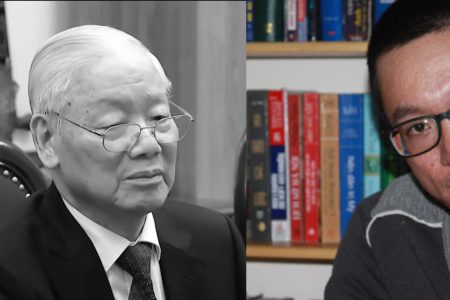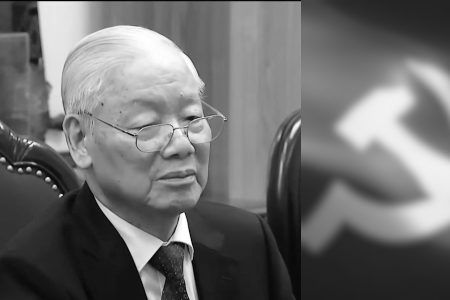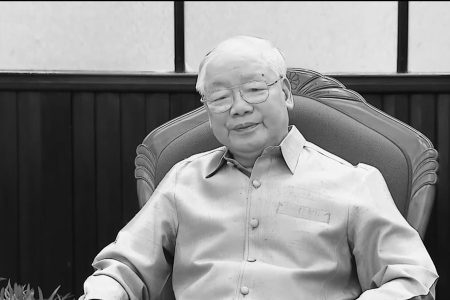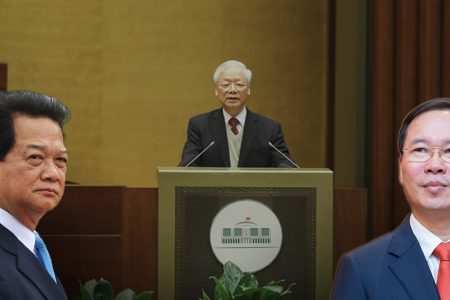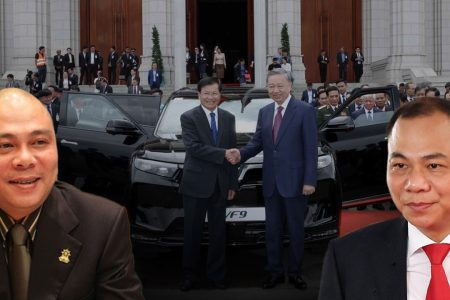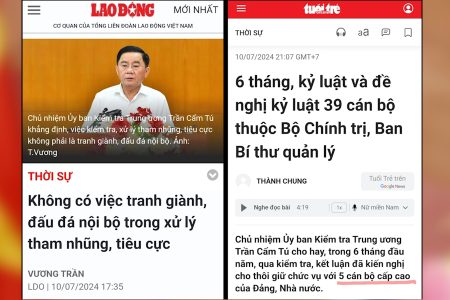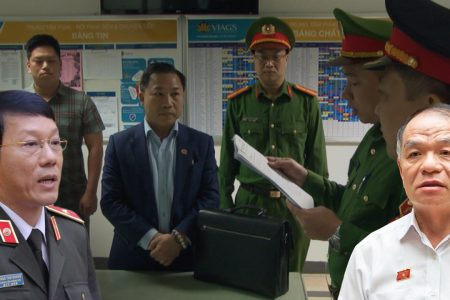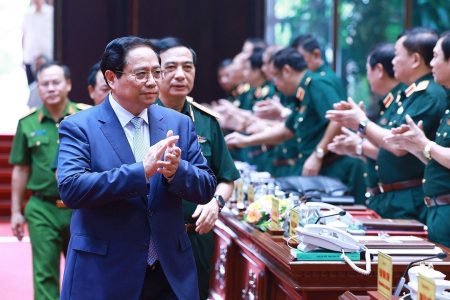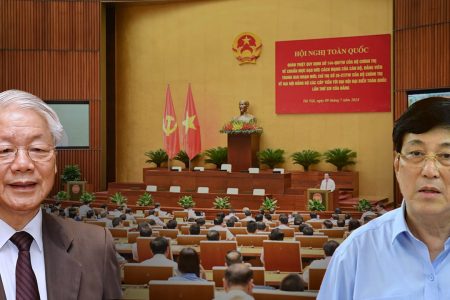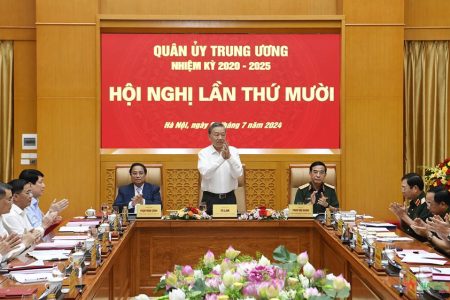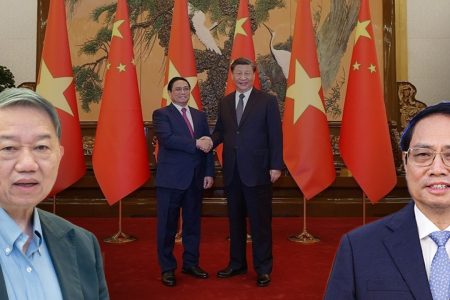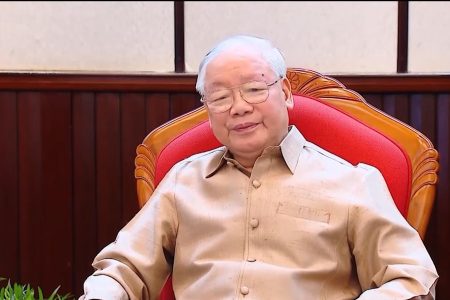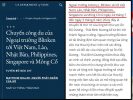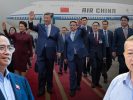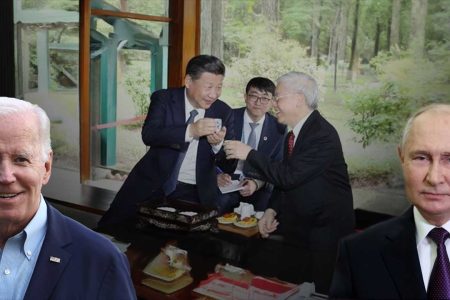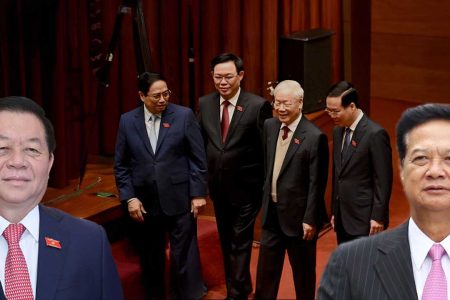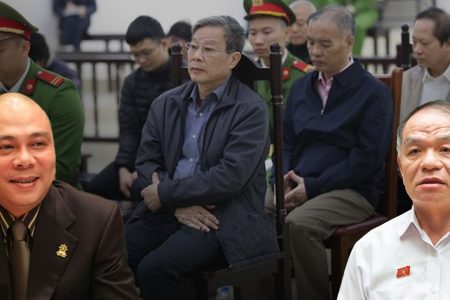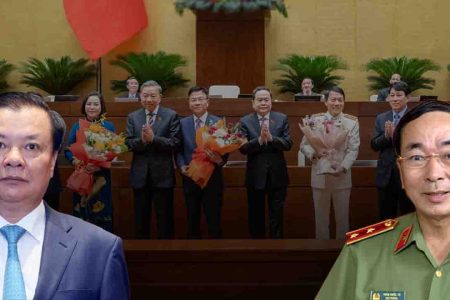While the world economy declined at least 4% in 2020 due to the COVID-19 pandemic, Vietnam is rated as a “bright star” in the region when the economy grows by nearly 3% (+2, 91%).
The leader of the Communist Party of Vietnam (CPV) once acknowledged: “Our country has never had such international potential, position and prestige” at the meeting held on January 26, 2021, one day before the third wave of COVID-19 broke out in Vietnam.
Not stopping at the scenario of “stamping out the pandemic in 10 days” but now nearly 2 weeks have passed, the outbreak has spread to many provinces and cities in Vietnam and it is likely that the two largest cities in the country Hanoi and Ho Chi Minh became “hot spots” with nearly 50 locations being blocked.
What will Vietnam’s economy look like in 2021 in this “new situation“? RFA had a talk with Dr. Nguyen Tri Hieu, Ph.D. in Economics and Finance.
RFA: Doctor, you once said “Despite having to cope with the pandemic wave, Vietnam still maintains a dual goal of preventing and combating the pandemics and developing socio-economic development. Therefore, 2020 can be considered as the year marking an achievement that I think is the best in 10 years”
So according to you, the economic picture of Vietnam in 2021 when the pandemic came back, is 2021 as good as 2020?
Dr. Nguyen Tri Hieu: Nothing can be confirmed for the year 2021, at this point, we have only passed one and a half months of 12 months of 2021. At this point, the pandemic is coming back, in the world, the situation the disease is getting more and more serious. In such a situation, the Vietnamese economy will be strongly affected.
The situation in 2020 was relatively positive and through 2021, if there is no pandemic, there will be a significant recovery. According to the government, GDP can be restored by 6-6.5%, but then the Prime Minister adjusted again and thinks that it can reach 7%, while some international organizations think that Vietnam can achieve higher growth than 7%. But when the pandemic struck in February, people also felt more worried.
In my opinion, if the pandemic is uncontrollable, of course, its impact cannot be imagined and the Vietnamese economy might fall into a depression. But if Vietnam could control the epidemic, in the best case, it would still affect the Vietnamese economy.
RFA: So, according to you, how will Vietnam’s economy be predicted?
Dr. Nguyen Tri Hieu: Hopefully at the end of the first quarter, people can control and prevent the spread of the disease until the end of March. With the assumption that by the end of March, the pandemic can be prevented. the economy will recover quickly in the following quarters. But by the end of the third quarter, if the pandemic spreads faster with variant viruses, the impact on the economy is unpredictable, in that case, the target of 6-7% by the government will be very difficult to achieve.
Perhaps I see three scenarios. Normal scenario means control of the disease in the first quarter, growth in the normal case is 5%. In the best case around 6%. In the bad case maybe 1-2%.
RFA: According to you, which scenario has a higher probability?
Dr. Nguyen Tri Hieu: All three scenarios like that, at this point, the uncontrolled pandemic situation made it difficult for each scenario to be.
If I calculate the names 100% points then I think perhaps the normal scenario (5%) happens with the greatest probability. The 6% scenario I think is very difficult. The scenario of + 1-2% has a lower probability since Vietnam already has the disease under control by 2020, so it is likely that Vietnam can control the pandemic. If in that case, after the first quarter, the disease is under control, the 5% scenario is the greatest probability.
RFA: In your opinion, in the above situation, what appropriate solutions should Vietnamese economic and policymakers come up with?
Dr. Nguyen Tri Hieu: There are probably a number of factors like this that Vietnam needs to promote for economic growth under any scenario:
Firstly, the Vietnamese economy must move quickly to the digital economy, a digital economy with all production and business processes being put into operation with a digital technology platform. Modern artificial intelligence as well as digital. That’s the point Vietnam can run very fast because a digital economy doesn’t need a huge financial investment, it’s just an intellectual and industrial problem. That is the strength of Vietnam because Vietnam does not have much money, but when it comes to human intelligence, Vietnamese people are smart and industrious. This is the forte of Vietnam that needs to be exploited.
The first step to boosting the economy is to bring the economy into the digital economy quickly in all aspects since national governance must be digital, all processes have to be automated, and minimizing human intervention. It is important to the digital issue of the economy that Vietnam must have big data to manage population data, about all the operations of the economy. From government to agencies, businesses, even people to use more digital platforms.
Secondly, during this period many small businesses were struggling because of the impact of the pandemic. So the government must have effective solutions than four packages last year introduced, including one VND300 trillion to the bank, one VND180 trillion to reduce taxes, the other VND62 trillion to pay for people labor, and a small package of VND18 trillion for businesses to borrow at zero interest to retain workers. Those packages are ineffective, so this year if the economy is really affected by the epidemic and there is a need for bailouts, there must be really effective bailouts, which means that money must go to the target. If to help businesses, the money must go to them, if the rescue package for people, the money must go to them. As for four packages last year, the money did not reach the object either to a trickle or to a portion.
The investment policies of the government need to be reviewed to focus on the areas of investment that are essential to the country and avoid waste. Public investment is of course one of the key points of investment. Investing in infrastructure is one of the problems not only in Vietnam but all over the world, many countries are investing in infrastructures such as bridges, roads, and traffic. The first is job creation, the second is to lay a foundation for future economic development.
Those are the three points I think are probably important to boosting Vietnam’s economy in 2021.
RFA: Thank you Dr. Nguyen Tri Hieu for your sharing with RFA Radio.
Thoibao.de (Translated)




